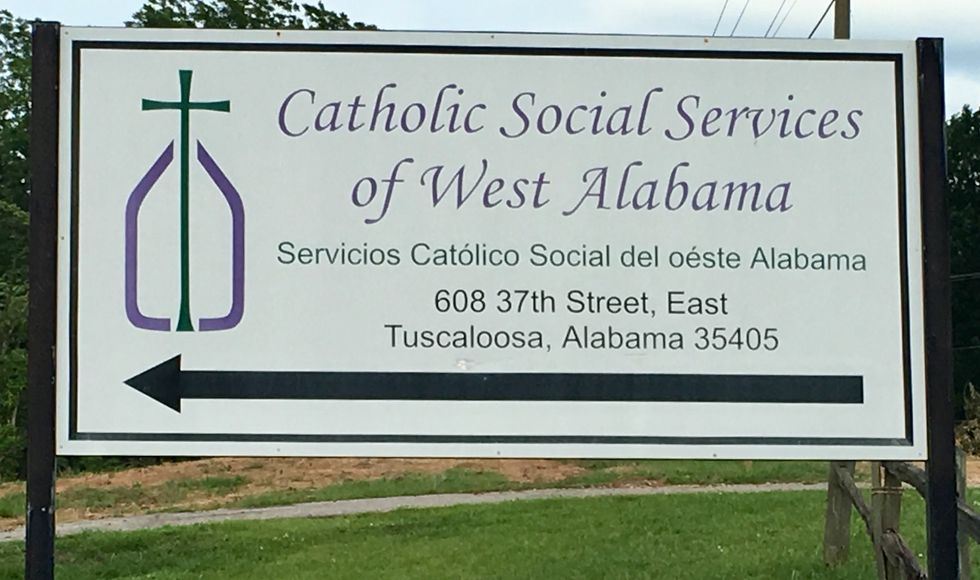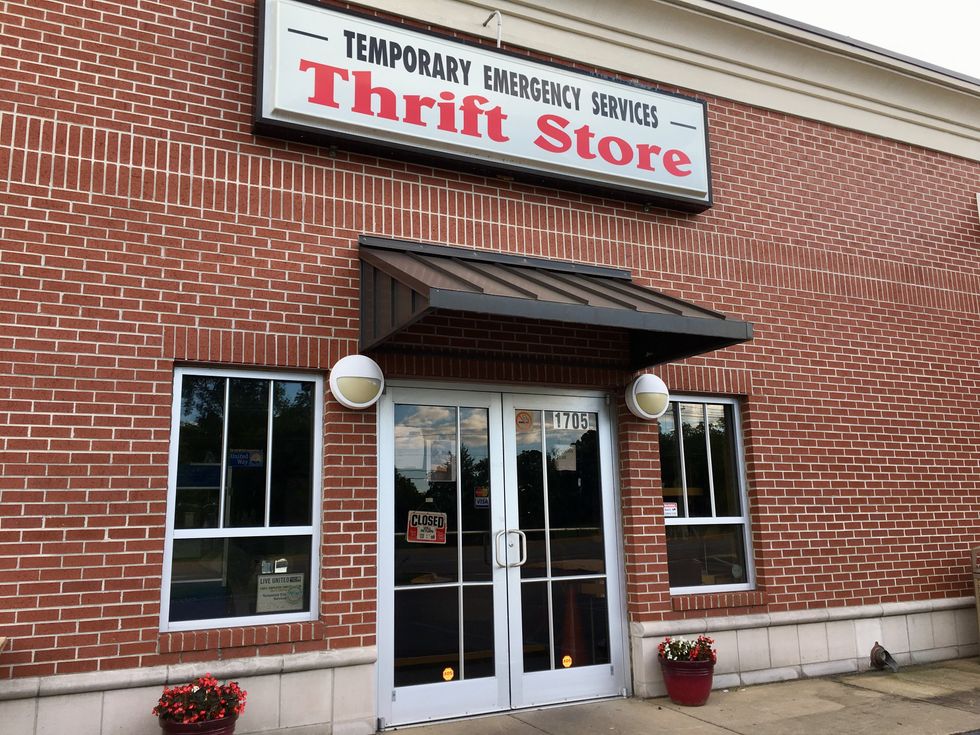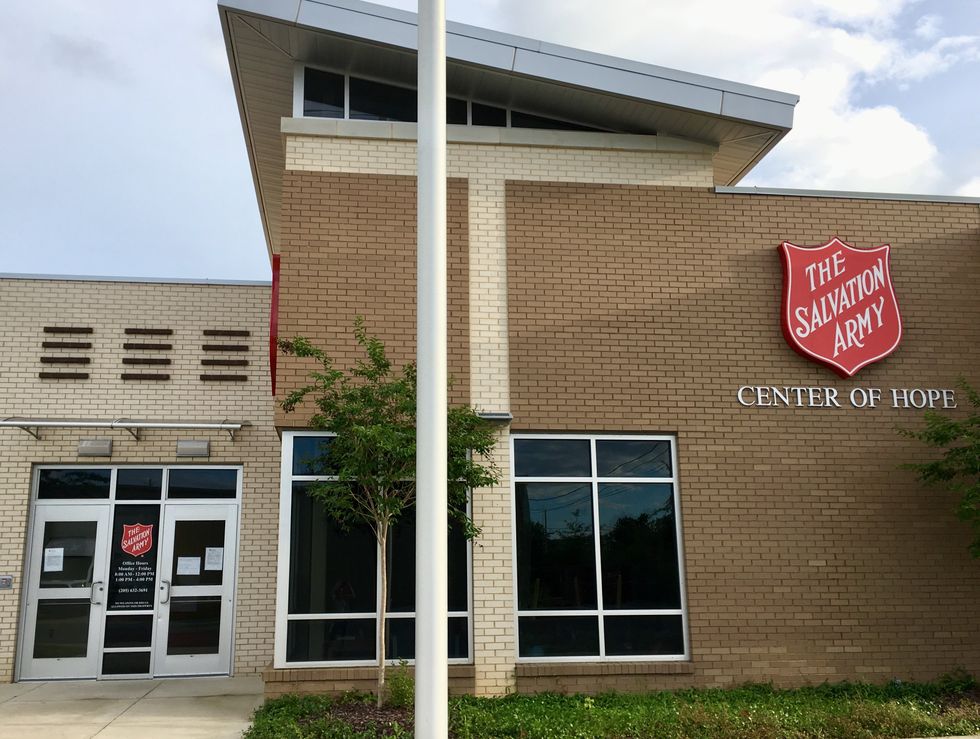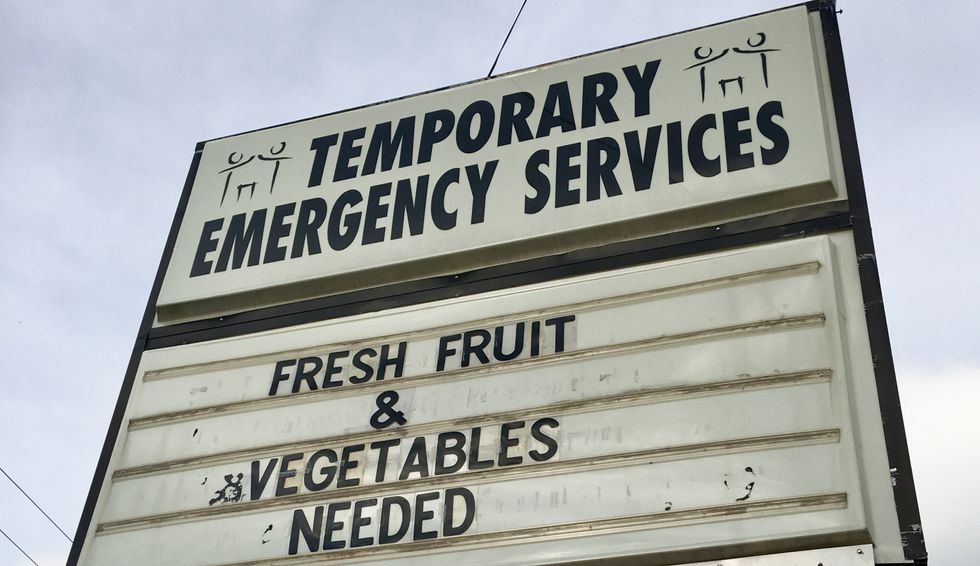Several nonprofit organizations are doing what they can to meet the needs of the Tuscaloosa community, creating an opportunity for University of Alabama students to lend a helping hand.
Janet Burns, 45, was never able to work a day in her life. She lives with epilepsy, sickle cell anemia, diabetes, and a cyst on her brain. She had her first epileptic seizure when she was 13 years old. When she was in her early 30s sickle cell became active in her body added pain and fatigue to her other ailments. Some days she cannot get out of bed for doctor appointments she desperately needs.
Burns is on disability and lives in section 8 housing in Tuscaloosa. She is on Medicaid but has so many medical expenses the disability was not enough for her to pay the whole power bill this month, forcing her to go to Catholic Social Services for financial assistance. Burns' bill to Alabama Power was $369.89, but she only had $200 to pay. She needed $169.89 to keep her power on.
"If I can help myself I do. I try my best not to use these services," Burns said. "It's a blessing when I get help and when I don't get help, it's a blessing for the others who do."

Catholic Social Services operates on a stipend from the Catholic Diocese of Birmingham, a stipend from Holy Spirit Catholic Church and donations from the community. According to Carolyn White, the office manager, CSS receives about 180 applications for financial assistance a week. The applications are reviewed by a committee and about 60 families are approved for assistance.
"We spend about $3,000, every week to help people meet basic needs in Tuscaloosa," White said. "In 2017, we paid $175,378.80 to help clients."
Sister Princess Mary Dawson, the food pantry manager for Catholic Social Services, said her favorite thing to do at work is call families who were approved for assistance.
"Most people are so appreciative, just the sound of relief in their voice makes all the paperwork worth it," Dawson said. "It's amazing to be in this position and be the hand of God."
White said the most rewarding part of her job is helping mothers.
"Anyone can walk in through that door on any given day. A mother can come and say her baby is in her last diaper and I am the person who tells her everything will be okay and we have plenty of diapers for her. It is truly a blessing to have a job where I can give and do in the name of the lord."
Burns said people on the street people out on the street want help and need help but do not know the right way to find it. Catholic Social Services is one of several non-profit organizations in Tuscaloosa that helps the community meet basic needs. Temporary Emergency Services helped 1,180 households with utility bills and assisted 20 families with rent in 2015.

"More people are finding employment, but the wages are still enough that they can be considered middle class. They are still living paycheck to paycheck, so they need different services to help them," said Karen Thompson, director of Temporary Emergency Services in Tuscaloosa. "The community is still having trouble meeting basic needs like finding affordable housing and maintaining the utility bill."
When the 2011 Tuscaloosa tornado chewed up and spit out 80 miles of Alabama, including the local Salvation Army Shelter, the community stepped up to help each other. The tornado created more than $2 billion in damage that included more than 1,500 Tuscaloosa homes. Catholic Social Services paid for hotel rooms for affected members of the community.
In 2016, the Salvation Army opened the Tuscaloosa Center of Hope, a state of the art shelter and hub for social services. The new building has four individual wings that house men, women, families and veterans. In addition to shelter, the Center of Hope provides meals and offers worship services, employment, and education opportunities.

Phyllis Lewis, director of social services, was born and raised in Tuscaloosa. After she taught first grade in Georgia and Alabama for several years, she realized teachers were limited in how much they could help their students. She returned to Tuscaloosa in 2015 and decided she wanted to work to help the community.
"At the Center of Hope our motto is 'teach them how to fish'," Lewis said. "We want to help them develop life skills, so they can meet their needs while helping them set and reach their goals."
If a parent arrived with a child, the organization helped them find daycare so they can work. Some clients do not have identification cards or documentation and can't afford to replace them. Salvation Army can assist in securing identification, so clients can become employed. Occasionally, employees will find themselves donating funds anonymously to help clients obtain documentation.
"It costs $30 for a new license and some people say that is not too bad. But who are you asking for $30? That is what it all comes down to." Lewis said.
Between April 2017 and March 2018, the Center of Hope served more than 44,000 meals to the local community, provided 20,000 individuals with shelter and distributed more than 5,000 clothing items.
To learn how you can help these organizations or donate your time, visit the websites that are linked to this article and get involved today!

















